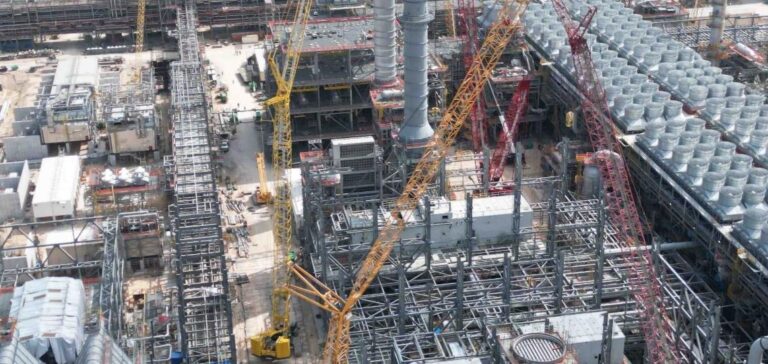QatarEnergy and ExxonMobil, co-owners of the Golden Pass liquefied natural gas (LNG) project in Texas, have filed a motion with a US court to terminate Zachry Industrial’s contract. This action follows the bankruptcy of Zachry, the main contractor, and major delays caused by cost overruns. For its part, QatarEnergy continues to invest in the gas sector, as illustrated by the acquisition of 104 LNG vessels.
Background and implications
The $10 billion Golden Pass LNG project is a joint venture between QatarEnergy and ExxonMobil. This project, crucial to increasing liquefied natural gas production capacity in the United States, is currently 75% complete. However, Zachry’s Chapter 11 bankruptcy last month has halted work and laid off thousands of workers.
The project owners have asked the court to terminate Zachry’s $5.8 billion contract within five days or allow possession and control of the facilities to prevent further deterioration.
Financial and legal challenges
Zachry said project costs had increased by $2.4 billion due to pandemic-related challenges, changes in orders and billing schedules. Unable to resolve these differences with the owners, Zachry opted for a “structured exit”. The company hopes to receive fair compensation for its role in the construction, while continuing to work on other projects nationwide.
Golden Pass LNG representatives pointed out that Zachry’s abandonment of the project had left costly and complex infrastructure components partially completed and exposed to the elements, posing additional risks to the project.
Outlook and next steps
Golden Pass LNG has stressed the urgency of resuming work to limit damage and delays. The project, originally scheduled to start processing gas this year, has not yet announced a new completion schedule.
The implications of this situation are far-reaching, affecting not only the contracting parties but also local workers and suppliers. Rapid resolution of this conflict is crucial to minimize financial and operational losses.
The request to terminate the contract is a decisive step for QatarEnergy and ExxonMobil in their efforts to regain control of the project and continue its development. This situation also highlights the challenges and risks inherent in large-scale energy infrastructure projects.






















